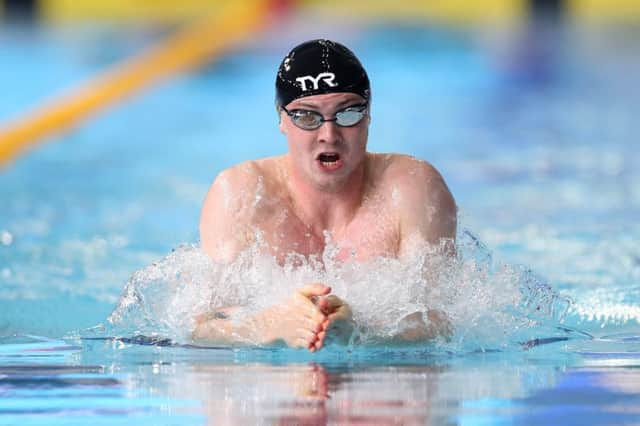Aquatic appliance of science to success


Which is why, a few weeks ahead of his 25th birthday, the now-former European and Commonwealth champion will begin a new year in a state of stimulation and flux, guided by gadgetry and angular metrics as he bids to regain lost ground and then propel himself beyond past limitations.
During a decade as a breaststroke specialist, the Scot has cultivated a technique that felt as natural as drawing breath. On the advice of the mathematical magicians, he has been tasked with moving his hands into a fresh position in the pool, a tweak measured in millimetres but which feels miles away from everything he has ever known.
Advertisement
Hide AdAdvertisement
Hide Ad“They’ve looked at ocean liners and how they get through the water,” he reveals, by way of a layman’s explanation. “So they look at velocity and drag and give you a score which allows you to make changes and see how it affects you. They’ve used video analysis as well and that’s good to look at.
“Sometimes, it’s obvious to see what’s going wrong but the biggest thing in swimming is that resistance. You might have the water coming over your back, and it gathers up in a kind of vortex. So if it’s flatter, you get less resistance. It’s tiny things like that coming out of all this. But those are the exciting things for me to see.”
The Scot remains as enthused as ever about his craft, admirable at the close of a 2018 where his silver in the 200 metres breaststroke at the Commonwealth Games was as good as it got, followed by an unexpected blank at the European Championships in Glasgow.
His fervour will eventually serve him well in his post-sporting endeavours where a role as a broadcast pundit surely beckons. Yet having missed out on even a sniff of a medal at the 2016 Olympics in Rio, daily training at dawn at the University of Stirling is not simply a means to forestall an alternative future. There is a confidence that small adjustments will restore him to the fast lane ahead of next summer’s world championship in Korea, and then at Tokyo 2020.
“There’s been a lot of problem-solving,” he confirms. “But at the same time, it was hard to look at the European final and see anything wrong with it apart from my position and the time. It was put together really well.” Ditto at the Commonwealths, other than an inability to accelerate at a higher rate which was identified and addressed. “We tried to rectify that for the summer but it didn’t come off. But I’m looking at 2019 as a really good year for putting in the ground work towards the Olympics.”
That British Swimming have crunched their own data and kept him on the top tier of Lottery funding is a vote of confidence, Murdoch acknowledges. They are investing heavily in his despatch to a number of altitude camps as part of the taper towards the spring’s world trials in Glasgow.
New ground, new ideas. The high life might generate further gains, or simply engender a placebo effect, he says. No matter. Results during the recent short-course season in which Murdoch claimed a clutch of Scottish records were the kind of boon to gladden a boffin’s heart. “That’s looking good heading into next year,” he grins. “The signs have been pretty positive.”